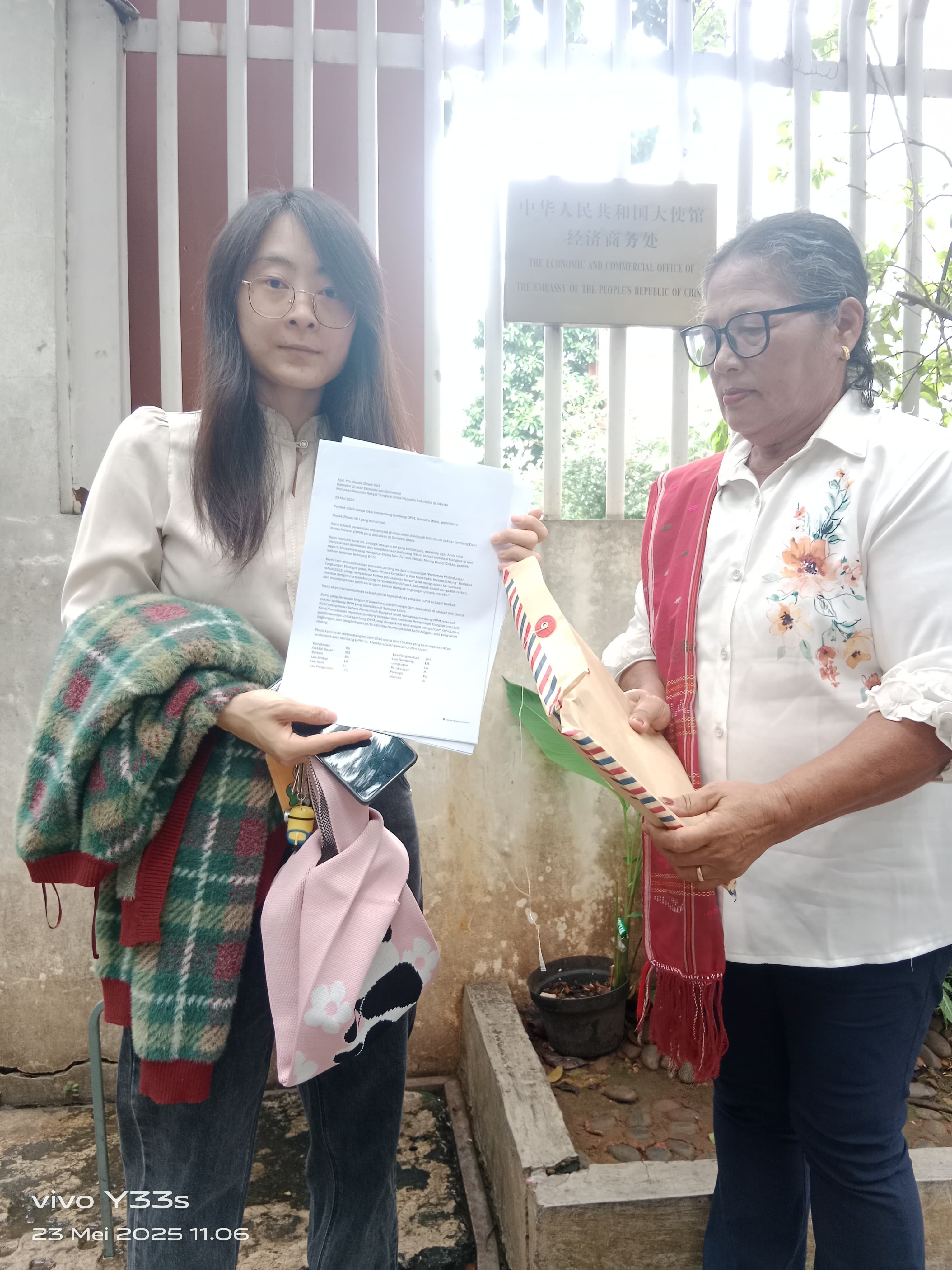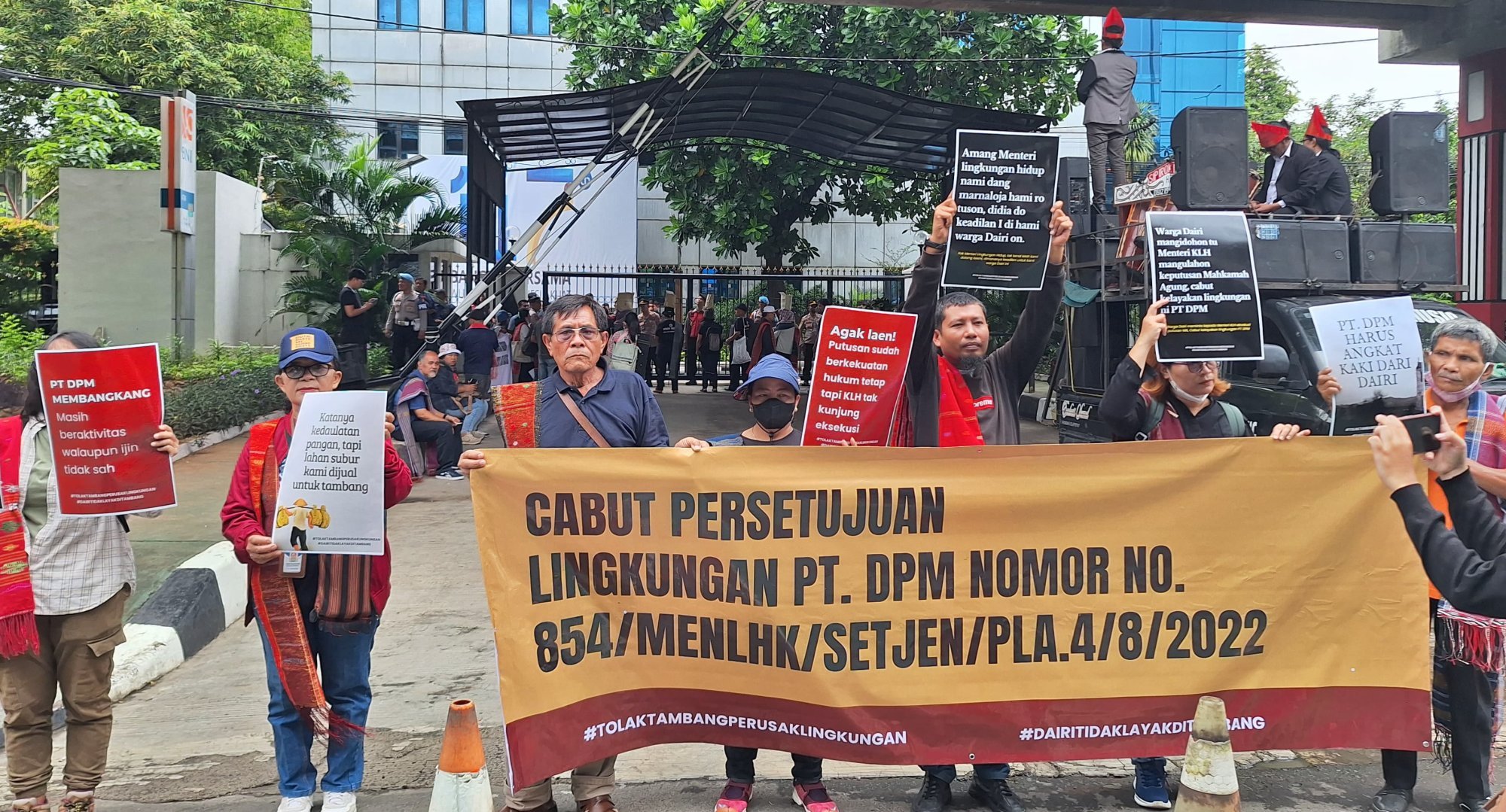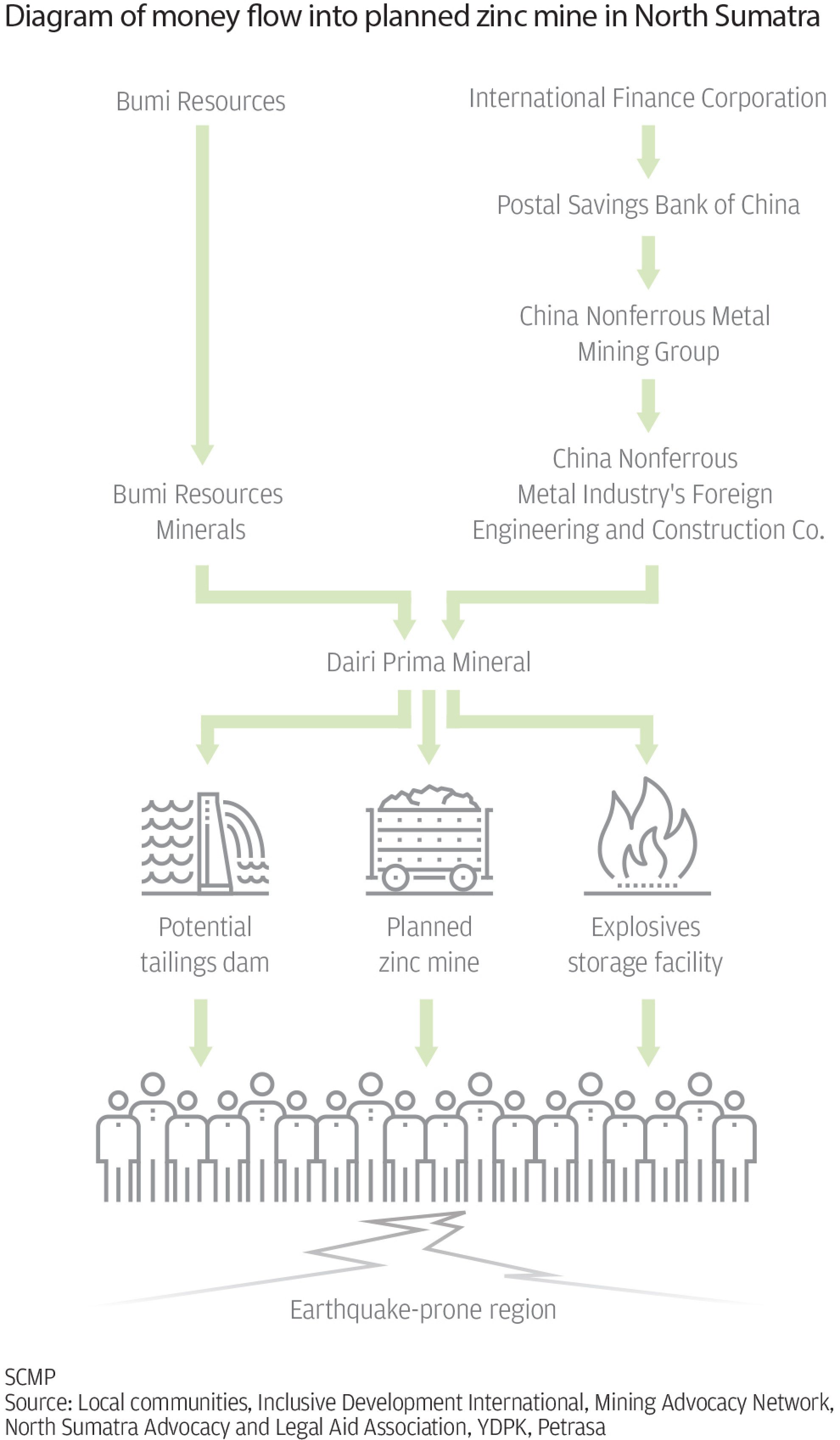Indonesian villagers urge China to stop funding mine project after permit loss
Residents in the earthquake-prone area have been protesting against the underground project since 2019

An Indonesian community in North Sumatra is calling on Beijing to withdraw financial backing for a China-linked zinc and lead mine in the earthquake-prone region after the project lost its environmental permit.
On May 23, Indonesia’s Ministry of Environment and Forestry formally revoked the approval it had granted in 2022 to Dairi Prima Mineral (DPM), an Indonesian joint venture seeking to build an underground mine in the Dairi regency. The move was in line with a Supreme Court ruling ordering the government to cancel the permit last August.
DPM is owned by China Nonferrous Metal Industry’s Foreign Engineering and Construction (CNMC), which holds a 51 per cent stake, and Indonesia’s Bumi Resources Minerals.
For years, Dairi residents have protested against the mine, as it posed serious environmental risks for their region.
One big concern was the building of a tailings dam that, if it collapsed, could flood the villages with toxic waste. Tailings dams are embankments constructed near mines to store mining waste in a liquid or solid form.

Rosa Vivien Ratnawati, a secretary general at the ministry, said that the revocation was carried out to comply with last year’s Supreme Court ruling.
“Of course we respect the decision of the Supreme Court … [which] requested that the Environmental Feasibility Decree [for DPM] be revoked,” Rosa told reporters on May 23.
“Please invest in Indonesia. However, environmental and health aspects must be maintained. Don’t let investment cause environmental damage.”
She said that the government would allow DPM to start another environmental impact study “from zero” if it still wanted to carry on with the mine.
‘Still worried’
Dairi residents, who had vowed not to let up in their fight against the mining company, hailed the permit cancellation.
Juniaty Aritonang, director at Medan-based North Sumatra People’s Legal Aid and Advocacy Association (Bakumsu), an NGO that provides legal support to communities, said the villagers appreciated the decision.
“This process is not easy; to achieve a victory like this, the community has been [protesting] since 2019 and started filing a lawsuit in 2022,” he said.
Monica Siregar, a resident of Dairi and coordinator of environmental NGO Diakonia Pelangi Kasih, said villagers would use the revocation of the permit as “proof” that “DPM can no longer carry out activities.”
“To this day, in Dairi, there are still operations by DPM such as road widening towards the centre of the mine. The explosives warehouse is yet to be relocated, even though it should be,” she said.
Another resident, Darwin Situmorang, said: “While I am pleased to see the revocation, I still feel worried. The companies, DPM itself and [majority owner CNMC] have both previously said they want to continue with the mine. They may try again to get government approval, but people all down the valley from the proposed mine site oppose any mining.”
Petitioning Beijing
In March, CNMC Chairman Liu Yu met Minister of Energy and Mineral Resources Bahlil Lahadalia in Jakarta and pledged to “accelerate the advancement” of the Dairi lead-zinc mine project “on the basis of compliance with laws and regulations”, according to a news release posted on the company’s website.
DPM’s persistent activities led local residents to deliver a petition to the Chinese embassy in Jakarta requesting Beijing to withdraw their financial support, on the same day the ministry announced the revocation. CNMC is a state-owned enterprise.
“The petition was filed to request the termination of the loan made by [CNMC] to DPM. There were around 2,046 people who signed the petition, and they live in … villages that would be affected by the proposed mining waste dam, if it leaks,” Monica said. “This petition was also to counter DPM’s claim that only a few people rejected the mine.”

It was addressed to Wu Zhiwei, economic and commercial counsellor at the Chinese embassy, who had not responded, Monica said.
The Chinese embassy did not immediately reply to a request for comments from This Week in Asia.
Bakumsu’s Juniaty claimed that the Chinese government was DPM’s sole financial lifeline, as “Indonesian and other international banks cannot provide loans” for a project that has been legally barred.
Aside from delivering the petition, Bakumsu and Dairi residents also have provided fact sheets of DPM’s activities to the law enforcement unit in the Ministry of Environment, but Monica said that there had been no response yet to their report.
‘Highly susceptible to failure’
The permit revocation showed that both the legal and political entities agreed that DPM’s mining activity would take place in “disaster-prone” areas of Dairi and should be avoided, Juniaty said.
David Williams, a mine waste management expert in Australia’s Brisbane, said in his assessment report published last May that DPM’s planned tailing storage facility design was likely to fail as it would be placed in “an area of very high seismicity, very high rainfall, landslides … and potentially susceptible to earthquake shaking”.
“These site conditions represent worst case scenarios in every respect, making the proposed tailings dam highly susceptible to failure, which would put the lives of a large number of people living in 11 villages downstream at risk, destroy livelihoods and crops, and cause severe environmental harm,” Williams said in the report, which was used by the Dairi residents as evidence in their Supreme Court case.